Flooding of the apartment of neighbors on the ground floor is one of the most common incidents in apartment buildings. However, not always the participants of such events know how to act correctly to protect their rights. This includes the alleged perpetrators, i.e. the residents of the upper apartment. From our detailed instructions you will learn what to do if you flooded the neighbors from below.
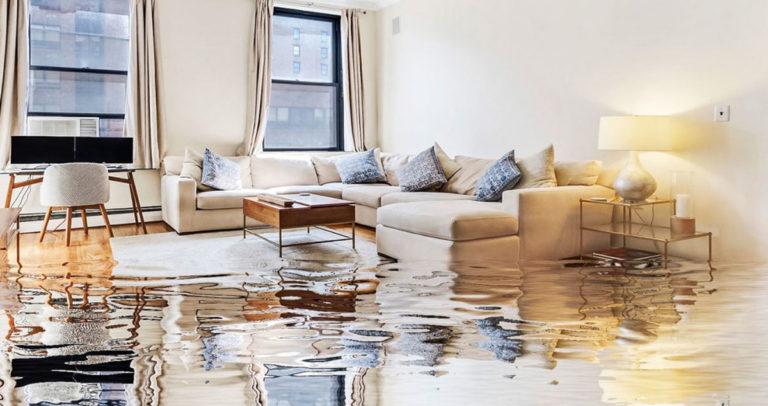
Contents of the article
The first actions upon detection of flooding
First of all, it is necessary to stop the flooding of the apartment and try to prevent further damage to your own and other people’s property:
- shut off the water with the first faucet from the common riser;
- if necessary, contact the emergency service;
- turn off the electricity in the entire apartment;
- remove electrical appliances and other items on the floor that may become unusable;
- collect water from the floor;
- notify downstairs neighbors;
- report the incident to the management company;
- if your apartment and (or) liability for flooding is insured, it is necessary to notify the insurance company and act according to its instructions.
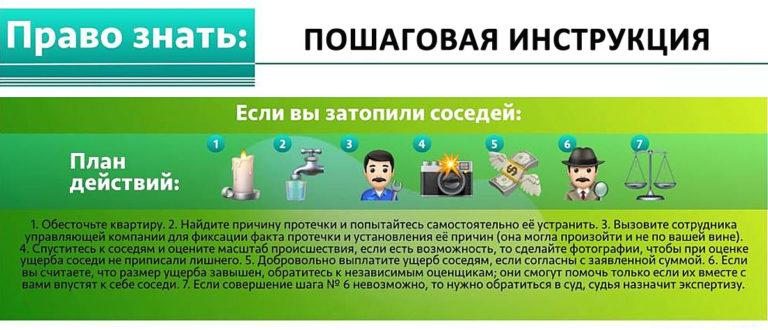
Procedure
Now that the flooding is stopped, you should take measures to find out the causes of the accident and determine the extent of the damage:
- Provide for inspection by the specialists of the management company of the devices and water supply networks in their apartment, take photos and videos of the details that can further help to determine the cause of flooding. If some evidence may disappear over time, it will not be superfluous to invite witnesses.
- Together with representatives of the management company to take part in the inspection of the apartment on the ground floor in order to identify damage to finishes and things. If necessary, record details on photos and video.
- Participate in the drawing up of the act of flooding the apartment, which will indicate the causes and perpetrators of the accident, as well as the damage caused.
- In case of disagreement with the conclusions of the management company about the cause of flooding or the extent of damage, the act should not be signed. In response, you should write a statement of disagreement, setting out your arguments.
- If your fault is obvious (forgot to close the faucet or burst an old flexible supply line), it makes sense to immediately discuss with the victims of the amount of compensation and in the absence of disagreement to draw up an amicable agreement.
Regardless of whether you are guilty of the incident or not, you should not go to a conflict with your neighbors, much less resort to threats or insults. In any case, you should try to settle the case peacefully.

Establishing the culprit of the accident
Finding out the causes of flooding allows you to answer the main question: who is the culprit of the accident, who will have to compensate for the damage.
Not with any malfunction of devices or water supply networks in your apartment you will be recognized as guilty. Therefore, you should not immediately admit your guilt, especially without the necessary technical knowledge. Liability can be avoided in cases where the cause of the flooding was any of the following:
- When installing equipment related to water supply (washing machine or dishwasher, faucet, faucet, bathtub, shower cabin, gas column, etc.) there were technological violations. In this case, the organization or entrepreneur who performed the installation will be responsible for the consequences. To confirm this, a contract and a receipt of payment will be required.
- Factory defect of the device with a valid warranty period. Responsibility will be borne by the manufacturer of the defective product.
- Failure of common devices or networks located in the apartment. For example, a riser pipe burst.
- Water leaking from the apartment above or from the roof.
- Breakdown of the heating system. The management company is responsible for its condition.
- A sharp jump in pressure in the water supply. The culprit in this case will be the water supply organization.
In all of these cases, you become a victim, as well as the neighbor below, and have the right to claim compensation for damages.
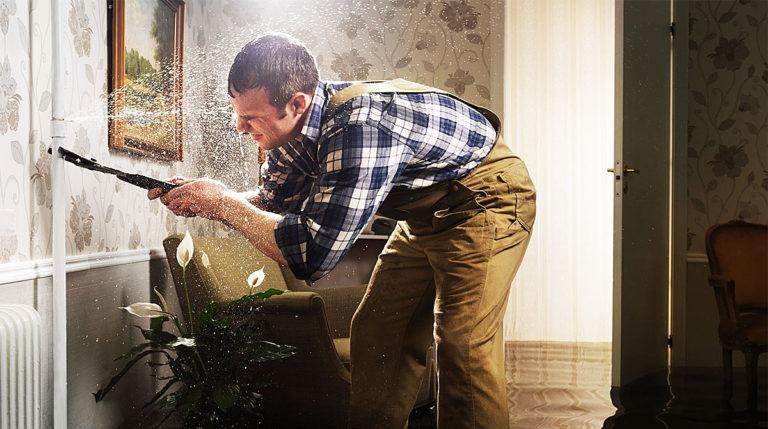
Damage assessment in case of flooding
There may be a situation that the victim will not allow you into his apartment together with the commission for inspection. In this case, the management company is obliged to give you a copy of the act of flooding. The document should contain a complete list of property affected by the flood. As an example, download the act of flooding.
However, do not fully rely on the honesty of the victims and the professionalism of the members of the commission. There were cases when unscrupulous victims, taking advantage of the situation, tried to include in the list of damaged property things and items that went out of order earlier. If you disagree with the causes of flooding or the extent of damage indicated in the act, you have the right to engage an independent expert.
Tasks of the expert:
- to study the circumstances of the case;
- to inspect both apartments;
- interview witnesses;
- to establish the cause of flooding of the dwelling;
- to determine the guilty person;
- ascertain the extent of the damage and give a monetary estimate;
- issue a detailed expert report.
In turn, the victim, not agreeing with the conclusion of your expert, can organize a counter independent expertise.
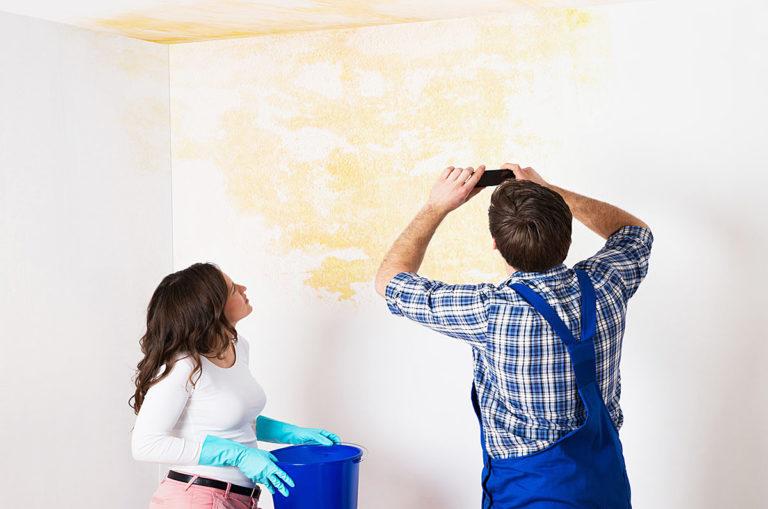
Requirements for the expert:
- special education in the field of the conducted expertise;
- membership in a self-regulated organization of expert appraisers;
- certificate of a forensic expert, if the conclusion will be submitted to the court.
Pre-trial settlement agreement
It often happens that at the initial stage of the conflict, the parties did not come to an agreement and the victim goes to court. But later, having weighed all the pros and cons, decides to agree to settle the case amicably. This can be done at any stage before the trial. With the adequacy of the perpetrator and reasonable financial requirements of the victim, most often this is what happens.
Pre-trial agreement is concluded in a free form, but necessarily in writing. The text of the document should reflect:
- the date and place of drawing up;
- details of the parties (full name, passport data, registration addresses);
- description of the accident and its causes;
- guilty person;
- description of the damage caused;
- amount to be compensated;
- method of compensation (money, building materials, repair of the apartment, payment for works or services);
- terms of compensation;
- the victim’s refusal of further claims;
- annexes (photos, expert opinions, etc.);
- signatures of the parties and witnesses.
A pre-trial agreement can also be concluded if the guilty party is a management company or other organization.
When transferring money, material valuables, performance of work and services, it is necessary to draw up appropriate receipts.
Consideration of the case in court
Court proceedings are the least convenient way to resolve the dispute for both parties. If you are sure of your rightness, it will not be superfluous to remind the victim of the additional difficulties of the court case compared to pre-trial settlement:
- all expenses (state duty, expertise, legal services) are borne by the plaintiff;
- it is necessary to collect and present a lot of documents;
- in case of a positive court decision, the funds for damages will be collected only from the official income of the defendant in installments;
- consideration of the case in court may take a long time.
In this case, a positive outcome and the return of costs to the victim is not guaranteed.
What to do if the opponent refuses to reduce the requirements and insists on a trial? Prepare to assert your rights. The victim will first present a written claim with all the requirements and after 30 days will file a lawsuit about the flooding of the apartment in court.
There is a not unreasonable opinion that the court, recognizing the rightness of the plaintiff, tries to reduce the amount of compensation. Therefore, claims in property disputes are often overstated. To protect your rights, the best solution will be to contact an experienced lawyer.
A claim for flooding may contain a claim for reimbursement of the following costs:
- the repair of the apartment;
- the cost and repair of things;
- services of an independent expert examination;
- lawyer’s services;
- state duty;
- moral damage.
At any stage of the process, the parties may conclude a judicial settlement agreement. It is mandatorily approved by a court ruling. In this case, the court does not make a decision, and the proceedings are terminated.
Responsibility of tenants
A separate mention requires a situation when your tenants flooded the neighbors below. The opinion that the fault is always the one who currently lives in the apartment, is not always true.
According to the law, the responsibility for the serviceability of water networks or appliances lies with the owner.
Article 210 of the Civil Code “Burden of maintenance of property”: The owner bears the burden of maintenance of the property belonging to him, unless otherwise provided by law or contract.
When you surrender the apartment, you are obliged to hand over to the tenant fully serviceable and ready for use. This must be reflected in the contract and the acceptance certificate. The tenants will only be liable for the flooding if they have violated the rules for the operation of the plumbing fixtures and fittings. If the accident was caused by faulty or worn-out equipment, the landlord will have to pay for the damage.

In any case, the victim will make a claim against you, and you will reassign the claim to the tenants.
Involvement of insurance companies
If your neighbor’s apartment or yours is insured, the process of compensation for damages may look different:
- If your apartment is insured against flooding and you are not at fault, you will receive an insurance claim and the insurance company will collect damages from the culprit.
- If your neighbor’s apartment is insured and you are the culprit, you will have to deal with his insurance company. Contrary to popular belief, this is not easier, but rather more complicated. Insurers make higher demands and use the services of experienced lawyers. In such a situation, it makes sense to try to negotiate with the victim directly.
- Theoretically, it is possible to insure your liability for the flooding of someone else’s apartment. However, in practice, this type of insurance is rare, as it is difficult for insurers to assess the possible damage from flooding without inspecting the property of neighbors.
Useful video on the topic:
Useful tips
- Material damage in case of flooding of your apartment with cold or hot water may be minimal, and neighbors will not notice the incident at all. To help avoid flooding, will help systems to protect against water leaks. There are several domestic brands that have positively proven themselves in this area. Here are a few of the most popular:
- “Akvastorozh”
- “Gidrolok”
- “Neptune.”
Especially want to emphasize in this list of protection system “Neptune”. Having installed sensors from the Neptun set in important places: bathroom, kitchen, toilet, you will reliably protect yourself from a flood. Having received a signal from the sensor about leakage, the system gives a signal to close cold or hot water taps. And since they close within 20 seconds, there will not be much damage.
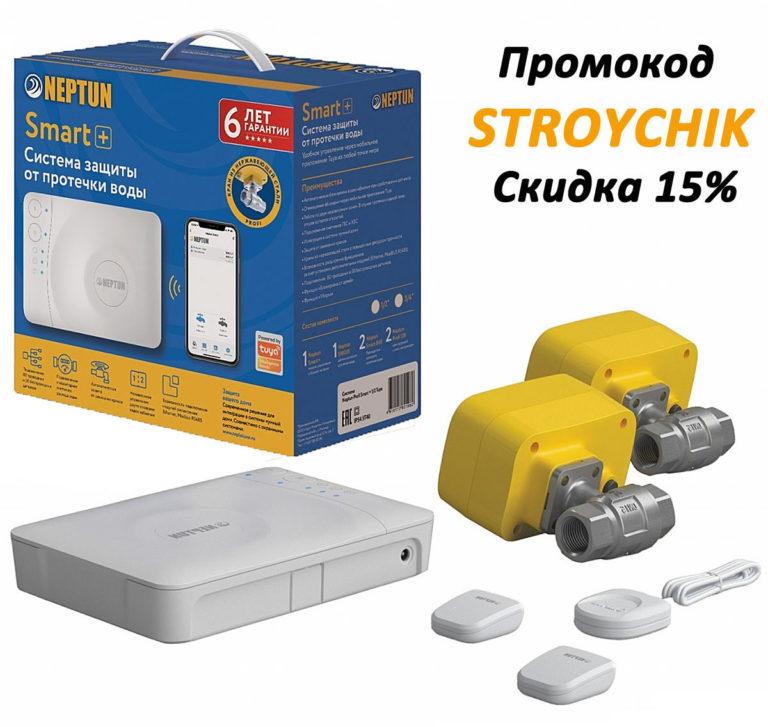
Conclusion
- Act within the legal framework: participate in drawing up a flood report, if you disagree, insist on an expert examination, etc.
- Read the document carefully, checking the information, and if you disagree, do not sign it.
- Consider insuring the apartment. The insurance company will deal with all flooding issues.

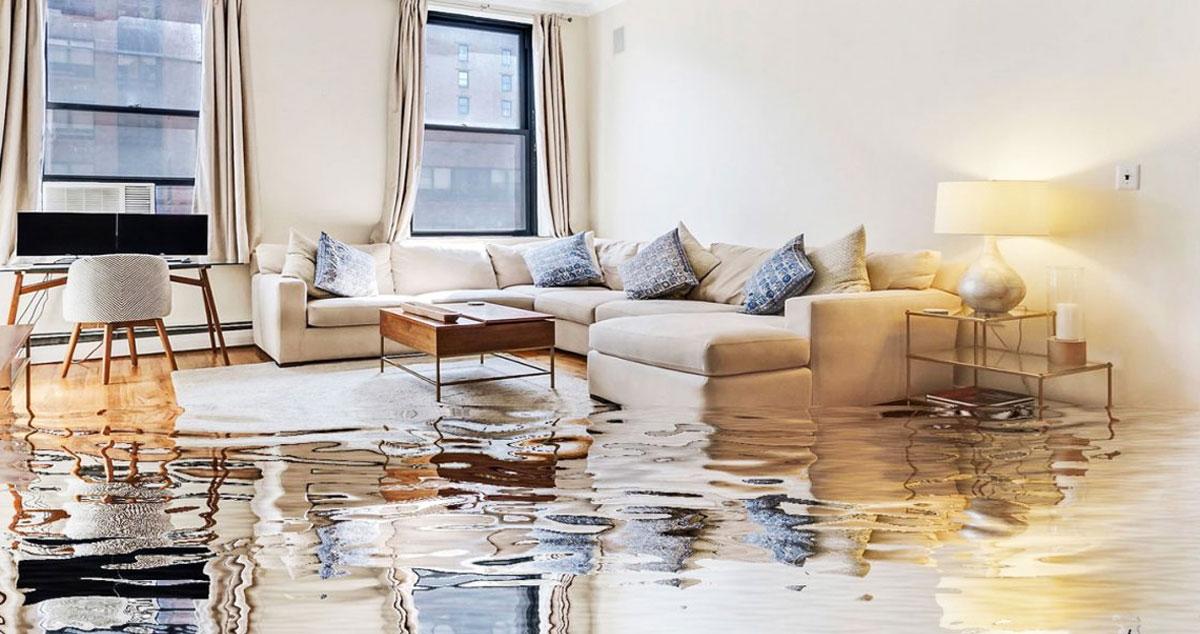






Wow, I totally panicked when I accidentally flooded my downstairs neighbors! I quickly shut off the water, called them to apologize, and rushed to grab towels. We ended up laughing about it later over coffee. Crazy how accidents can turn into unexpected bonding moments!